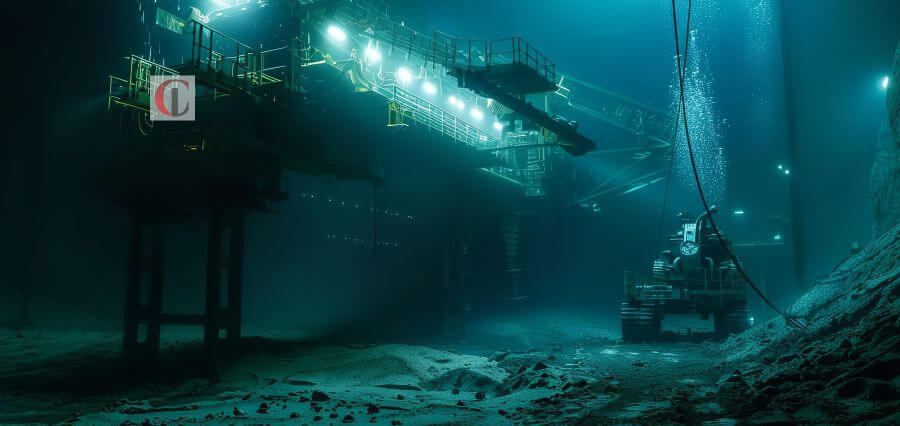Mining plays a crucial role in the global transition toward a net-zero economy. As we strive to reduce carbon emissions and embrace clean energy technologies, the mining industry must adapt and innovate. As we gaze into the future, the mining sector is poised for significant transformations driven by technological innovations and an urgent imperative for sustainability.
The Critical Role of Mining
The mining industry extracts critical minerals necessary for green technologies. Cobalt, lithium, and copper are vital components in batteries, wind turbines, and solar panels. However, by 2030, existing mines will produce only about half of the cobalt and lithium and around 80% of the copper required.
Currently, Africa supplies most of the critical raw materials needed for electric vehicles (EVs). However, relying heavily on specific regions poses risks. For instance, the Democratic Republic of Congo (DRC) produces 70% of the world’s cobalt. As demand soars, supply may deplete, affecting material quality.
Technological Innovations Shaping the Future
Mining is being reshaped by advancements in technology that promise to increase efficiency, safety, and environmental responsibility. Automation and Robotics have emerged as game-changers, allowing for the remote operation of heavy machinery and the execution of tasks in hazardous environments without endangering human lives. This not only enhances safety but also boosts productivity by operating equipment around the clock.
Data Analytics and Artificial Intelligence (AI) are revolutionizing mining operations by offering insights into geological data, optimizing resource allocation, and predicting maintenance needs to prevent costly downtime. AI-powered systems can analyze vast amounts of data to identify patterns that humans might overlook, leading to smarter decision-making and improved efficiency.
Drones and Remote Sensing technologies enable precise surveying and mapping of mining sites, offering detailed 3D models that aid in planning and monitoring. They provide real-time data on environmental impacts, helping companies adhere to regulatory standards and minimize ecological footprints.
Innovations Driving Sustainability
Sustainable mining practices are reshaping commodity markets. Innovations lead to more efficient operations, reduced environmental impact, and potentially lower mineral costs. This benefits industries beyond mining, including technology and renewable energy.
Mining companies are embracing technology to enhance safety, efficiency, and sustainability. Automation, data analytics, and AI-driven solutions improve mining operations. For African mining, overcoming innovation bottlenecks is crucial for faster adoption.
Mining can contribute to a circular economy by recycling materials and minimizing waste. By reusing metals and optimizing resource use, industry can reduce its environmental footprint.
Social Responsibility and Community Engagement
Beyond environmental concerns, the mining industry faces increasing scrutiny regarding its social impact. Communities near mining sites often bear the brunt of environmental degradation and disruption to livelihoods. To address these challenges, companies are emphasizing community engagement and cultivating local economic development through job creation, skills training, and infrastructure investments. Responsible mining practices are essential not only for securing a social license to operate but also for building sustainable partnerships with local stakeholders.
Regulatory and Ethical Considerations
The path to a sustainable future for mining also involves navigating regulatory frameworks and ethical considerations. Governments and international bodies are tightening regulations around environmental protection, labor rights, and mineral sourcing practices. Companies are expected to uphold ethical standards, ensuring supply chains are free from conflict minerals and labor exploitation while adhering to stringent environmental and safety protocols.
Challenges Ahead
The mining sector must prioritize diversity and inclusion. Encouraging women and underrepresented groups to participate in mining careers nurtures innovation and fresh perspectives. Mining companies must balance resource extraction with environmental protection. Responsible land rehabilitation, water management, and biodiversity conservation are essential. Building trust with local communities is critical. Transparent communication, fair compensation, and community engagement are key to maintaining a social license to operate.
Sustainability Imperatives
With these technological advancements, sustainability has emerged as a critical focus for the mining industry. The environmental impact of mining operations has historically been significant, with concerns ranging from land degradation and deforestation to water pollution and greenhouse gas emissions. In response, mining companies are increasingly adopting sustainable practices to mitigate these impacts.
Resource efficiency is a key area where innovations are driving change. Advanced processes for ore sorting and refining are reducing waste and energy consumption, maximizing the extraction of valuable minerals, and minimizing environmental impact. Additionally, initiatives like water recycling and management systems are conserving water resources in arid mining regions, which is crucial for both operational needs and local communities.
Conclusion,
The future of mining lies in bold innovations and sustainable practices. As demand for critical minerals grows, the industry must collaborate, invest in technology, and prioritize environmental and social responsibility. By doing so, mining can play an essential role in our journey toward a greener, net-zero world.

